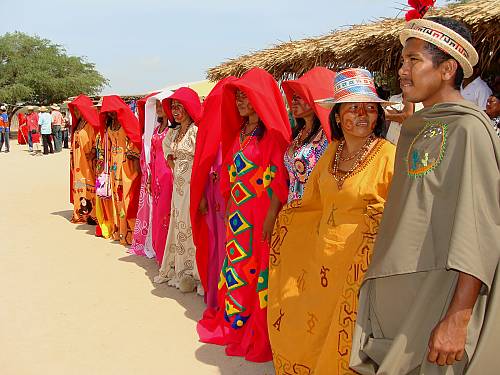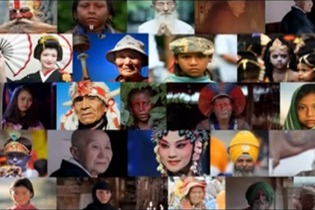9 August: UNESCO celebrates the International Day of the World’s Indigenous People

© 2009 by Jayariyu
This year’s theme for theInternational Day of the World’s Indigenous Peopleis “The Role of Indigenous Women in the Preservation and Transmission of Traditional Knowledge”.
Indigenous women are indeed at the forefront of safeguarding living heritage practices and traditional knowledge. They contribute to environmental protection, quality education, responsible production and other Sustainable Development Goals (SDGs) as part of the Agenda 2030. The Lists of the 2003 Convention show many examples where indigenous women play a crucial role in the safeguarding and the smooth transmission of their intangible cultural heritage (ICH) within their indigenous communities and beyond. Take a glimpse at a few examples below.
⚫ Indigenous knowledge, encased in language, is often transmitted and expressed through a myriad of practices and expressions. Indigenous Women are at the forefront of this transmission, such as the Kallawaya women in Bolivia.
⚫ InTimor-Leste, the production of Tais, a traditional textile, is a role reserved for women, who are also responsible for passing the knowledge and skills on to the next generation.
⚫ Mongolherds women perform a coaxing ritual to encourage female camels to accept a new-born or to adopt an orphan. Those women engage in techniques and specific methods of coaxing, and transmit those to youth through home tutoring, safeguarding this living heritage practice.
⚫ Indigenous Women transmits the traditional Mexican cuisine and unique farming methods to younger generations, encouraging sustainable development.
⚫ The Hudhud consists of narrative chants traditionally performed by the Ifugao community, which is well known for its rice terraces inthe PhilippineCordilleras, a World Heritage Site. Women transmit this living heritage made of stories and chants to younger generations in this matrilineal society.
⚫ The Awajún people of northern Peruview pottery as an example of their harmonious relationship with nature. The main bearers of the Awajún pottery knowledge, lore and traditions are the Dukúg wisewomen, female elders who pass the practice on to other women in their families.
⚫ Aixan/Gana/Ob#ANS TSI //Khasigu, ancestral musical sound knowledge and skills relates to the specific traditional music of the Nama people, one ofNamibia’s tribal minority groups. Inscribed on the Urgent Safeguarding List, this musical living heritage practice is transmitted by elders to younger generations.
UNESCO celebrates the role of indigenous women across the world. For more information on 2003 Convention and indigenous peoples, visit our dedicated webpage.

Address: 81, Laiguangying West Road, Chaoyang District, Beijing, China
Zip Code: 100021
Tel: 86-10-64966526
Fax: 86-10-64969281
E-mail: crihap@crihap.cn
Leave us your e-mail address, we'll let you know about current events.



